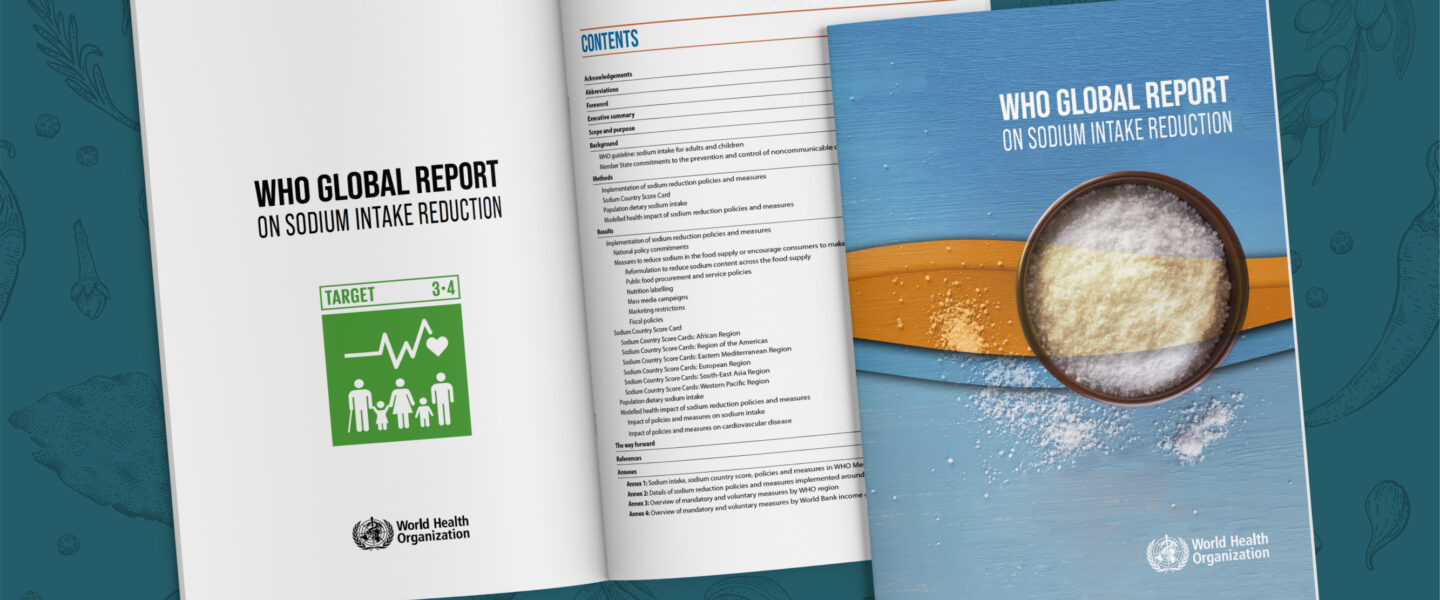18 May 2023

Comment: WHO Global Report On Sodium Intake Reduction
A first-of-its-kind World Health Organization (WHO) Global report on sodium intake reduction[1] (published 09.03.23) shows that the world is off-track to achieve its global target of reducing sodium intake by 30% by 2025.
Sodium, while an essential nutrient, increases the risk of heart disease, stroke and premature death when eaten in excess, but the report shows that if highly cost-effective sodium reduction policies were implemented, an estimated 7 million lives could be saved globally by 2030.
In 2016 the WHO released their “SHAKE Technical Package for Salt Reduction”[2] designed to assist Member States with the development, implementation and monitoring of salt reduction strategies to enable them to achieve a reduction in population salt intake. Sadly, this new report shows the implementation level being for
- sodium-related ‘best-buys’: 5%
- at least one mandatory measure: 22%
- at least one voluntary measure: 33%
- policy commitment: 29%
At this level of implementation, not a single Member State is set to achieve the 30% reduction target.
To try and meet these targets, the WHO repeatedly advocates for a comprehensive approach to sodium reduction by Member States, highlighting that the adoption of mandatory policies and implementing their four “best buy” interventions related to sodium, would greatly contribute to preventing noncommunicable diseases. These interventions include:
- Reformulating foods to contain less salt, and setting targets for the amount of sodium in foods and meals
- Establishing public food procurement policies to limit salt or sodium rich foods in public institutions such as hospitals, schools, workplaces and nursing homes
- Front-of-package labelling that helps consumers select products lower in sodium
- Behaviour change communication and mass media campaigns to reduce salt/sodium consumption
The report also suggests that countries should explore ways to increase the availability and use of potassium enriched low-sodium salt substitutes – such as LoSalt.
At LoSalt we are passionate about making it easier for people to cut down on their salt intake, where needed, and agree with the report that more needs to be done by retailers and manufacturers to help make the healthy choice the default. Making low-sodium salt substitutes more prominent on shelf and promoting them as the healthier alternative is the only responsible way forward, and we hope to see retailers make the changes that are so urgently needed.
For tips on ways to cut down on salt while at home and delicious recipe ideas, visit: www.losalt.com/cooking-with-losalt
References:
[1] https://www.who.int/publications/i/item/9789240069985
[2] https://apps.who.int/iris/bitstream/handle/10665/250135/9789241511346-eng.pdf
